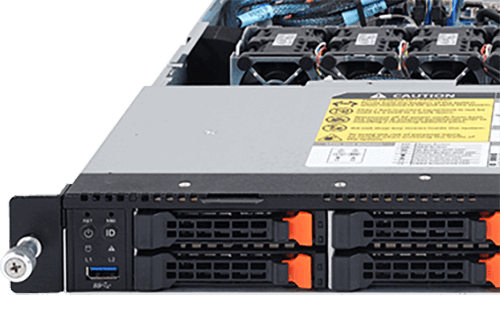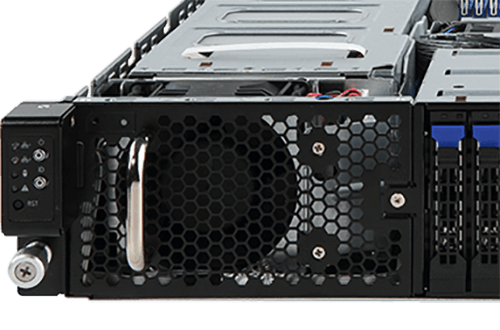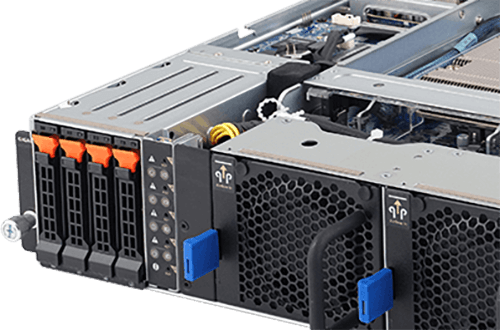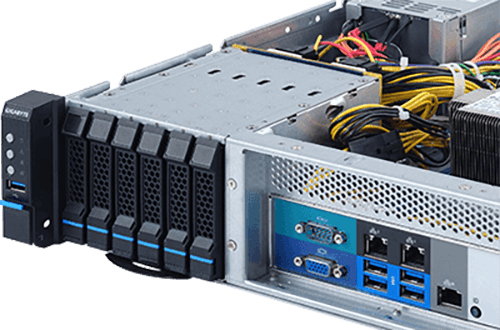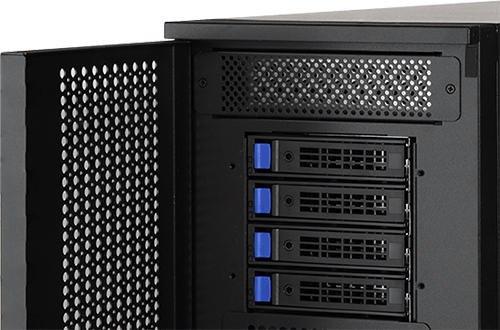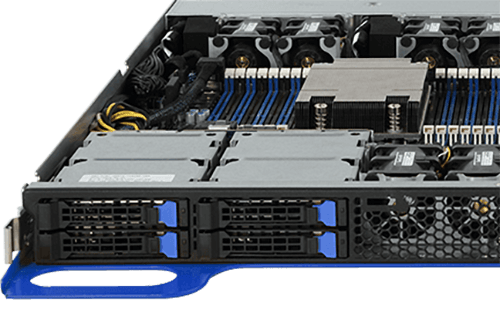GA-8IK1100 (rev. 2.x)
- Supports 800MHz FSB Pentium® 4 Processor with HT Technology
- Supports Dual Channel DDR400 architecture with ECC
- AGP 8X with AGP Pro interface for work-station graphics
- Integrated Serial-ATA interface with RAID 0 function
- Integrated T.I. IEEE1394 interface
- Integrated Intel® PRO/100 VE Ethernet controller
- Features Performance Acceleration Technology (PAT)
-
Introduction
 Supporting the latest Intel Pentium 4 processor with 800MHz FSB and Hyper-Threading Technology, this platform offers new level of performance, creativity and productivity than ever before.
Supporting the latest Intel Pentium 4 processor with 800MHz FSB and Hyper-Threading Technology, this platform offers new level of performance, creativity and productivity than ever before. -
Supports 800MHz FSB Intel® Pentium® 4 Processor with HT Technology
 Leveraging the Intel® 875P chipset to support 3GHz+ P4 CPUs on 800MHz FSB, Intel Hyper-Threading Technology and advanced features, the GA-8KNXP Ultra-64 delivers a full-value, highest performance solution for today's most demanding tasks
Leveraging the Intel® 875P chipset to support 3GHz+ P4 CPUs on 800MHz FSB, Intel Hyper-Threading Technology and advanced features, the GA-8KNXP Ultra-64 delivers a full-value, highest performance solution for today's most demanding tasks -
Dual Channel DDR 400 Memory Architecture with ECC Support
 With double the bandwidth of your system memory and hence boosts the system performance to out perform any memory existing solutions in the market. The GA-8IPE775-G (Rev 1.1) allows you to handle memory-intensive tasks with ease
With double the bandwidth of your system memory and hence boosts the system performance to out perform any memory existing solutions in the market. The GA-8IPE775-G (Rev 1.1) allows you to handle memory-intensive tasks with ease -
GIGABYTE C.I.A. (CPU Intelligent Accelerator) Technology
 GIGABYTE C.I.A (CPU Intelligent Accelerator) is designed to detect CPU loading during software program's executing, and automatically adjust CPU computing power to maximize system performance. During loading high CPU resources consumption tasks, such as video and audio encoding programs or thrilling 3D games, the CPU requires more CPU computing power; when C.I.A is enabled, it will detect the current CPU loading and automatically accelerate the CPU computing performance, thus allow programs to execute faster and smoother. On the other hand, when the programs are terminated, the CPU will return back to its initial status.
GIGABYTE C.I.A (CPU Intelligent Accelerator) is designed to detect CPU loading during software program's executing, and automatically adjust CPU computing power to maximize system performance. During loading high CPU resources consumption tasks, such as video and audio encoding programs or thrilling 3D games, the CPU requires more CPU computing power; when C.I.A is enabled, it will detect the current CPU loading and automatically accelerate the CPU computing performance, thus allow programs to execute faster and smoother. On the other hand, when the programs are terminated, the CPU will return back to its initial status. -
Intel® PRO/100 VE Network Connection
 Integrated Intel® PRO/100 VE connection utilizes Intel® LAN for users who need straightforward high speed, high quality and high performance network connectivity.
Integrated Intel® PRO/100 VE connection utilizes Intel® LAN for users who need straightforward high speed, high quality and high performance network connectivity. -
Serial ATA Interface
 Serial ATA is the next generation ATA specification that provides scalable performance for today and tomorrow. With up to 150MB/s data transfer rate, Serial ATA is faster than current Parallel ATA, while providing 100% software compatibility.
Serial ATA is the next generation ATA specification that provides scalable performance for today and tomorrow. With up to 150MB/s data transfer rate, Serial ATA is faster than current Parallel ATA, while providing 100% software compatibility. -
Texas Instrument IEEE 1394 Firewire Interface
 The high performance IEEE1394 interface enhances PC connectivity with consumer electronics audio/video (A/V) appliances, and storage peripherals.
The high performance IEEE1394 interface enhances PC connectivity with consumer electronics audio/video (A/V) appliances, and storage peripherals. -
AGP 8X Graphics Interface
 Featuring AGP 8x (AGP 3.0) the new generation VGA interface specification, this platform delivers enhanced graphics performance with high bandwidth up to 2.12GB/s. Allowing users to have a more realistic graphics experiences while gaming or movie watching.
Featuring AGP 8x (AGP 3.0) the new generation VGA interface specification, this platform delivers enhanced graphics performance with high bandwidth up to 2.12GB/s. Allowing users to have a more realistic graphics experiences while gaming or movie watching. -
GIGABYTE Xpress3 Series Software
 The Xpress3 series software includes 3 unique software features, 1) Xpress Install for easier driver installation ,2) Xpress BIOS Rescue for restoring BIOS back to its original stage if the BIOS is crashed, 3) Xpress Recovery 2 a revolutionary software feature that backup or restore system files thru GIGABYTE driver CD or BIOS function.
The Xpress3 series software includes 3 unique software features, 1) Xpress Install for easier driver installation ,2) Xpress BIOS Rescue for restoring BIOS back to its original stage if the BIOS is crashed, 3) Xpress Recovery 2 a revolutionary software feature that backup or restore system files thru GIGABYTE driver CD or BIOS function. -
High quality 6-channel audio with UAJ function
 Featuring incredible sound quality especially with its S/P DIF-IN/OUT function that enables users to experience high quality audio for multimedia entertainment. With new Universal Audio Jack (UAJ) feature users won't have the worries about how to install speakers correctly.
Featuring incredible sound quality especially with its S/P DIF-IN/OUT function that enables users to experience high quality audio for multimedia entertainment. With new Universal Audio Jack (UAJ) feature users won't have the worries about how to install speakers correctly.

* คำว่ำ HDMI, HDMI High-Definition Multimedia Interface, HDMI Trade dress และโลโก้ HDMI เป็ นเคร ื่องหมำยกำรค้ำหรือเครื่องหมำยกำรค้ำจดทะเบียนของ HDMI Licensing Administrator, Inc.
* ข้อมูลเบื้องต้นมีไว้สำหรับอ้างอิงเท่านั้น GIGABYTE ขอสงวนสิทธิ์ในการปรับเปลี่ยนหรือแก้ไขเนื้อหาได้ตลอดเวลาโดยไม่ต้องแจ้งให้ทราบล่วงหน้า
* ประสิทธิภาพสูงสุดที่ใช้ในการประชาสัมพันธ์เป็นเพียงข้อมูลตามทฤษฎีจากผู้ผลิตชิปเซ็ตที่เกี่ยวข้อง หรือองค์กรที่กำหนดคุณสมบัติอินเตอร์เฟส ประสิทธิภาพที่แท้จริงอาจแตกต่างกันโดยการตั้งค่าของระบบที่ไม่เหมือนกัน
* เครื่องหมายการค้าและโลโก้คุณสมบัติต่างๆ เป็นของผู้ถือสิทธิ์นั้นๆ
* เนื่องจากความต้องการหน่วยความจำมาตรฐานของสถาปัตยกรรมคอมพิวเตอร์ต่อหน่วยที่ไม่เหมือนกัน ดังนั้นขนาดหน่วยความจำที่จำเป็นอาจน้อยกว่าจำนวนที่ระบุไว้ก็ได้







